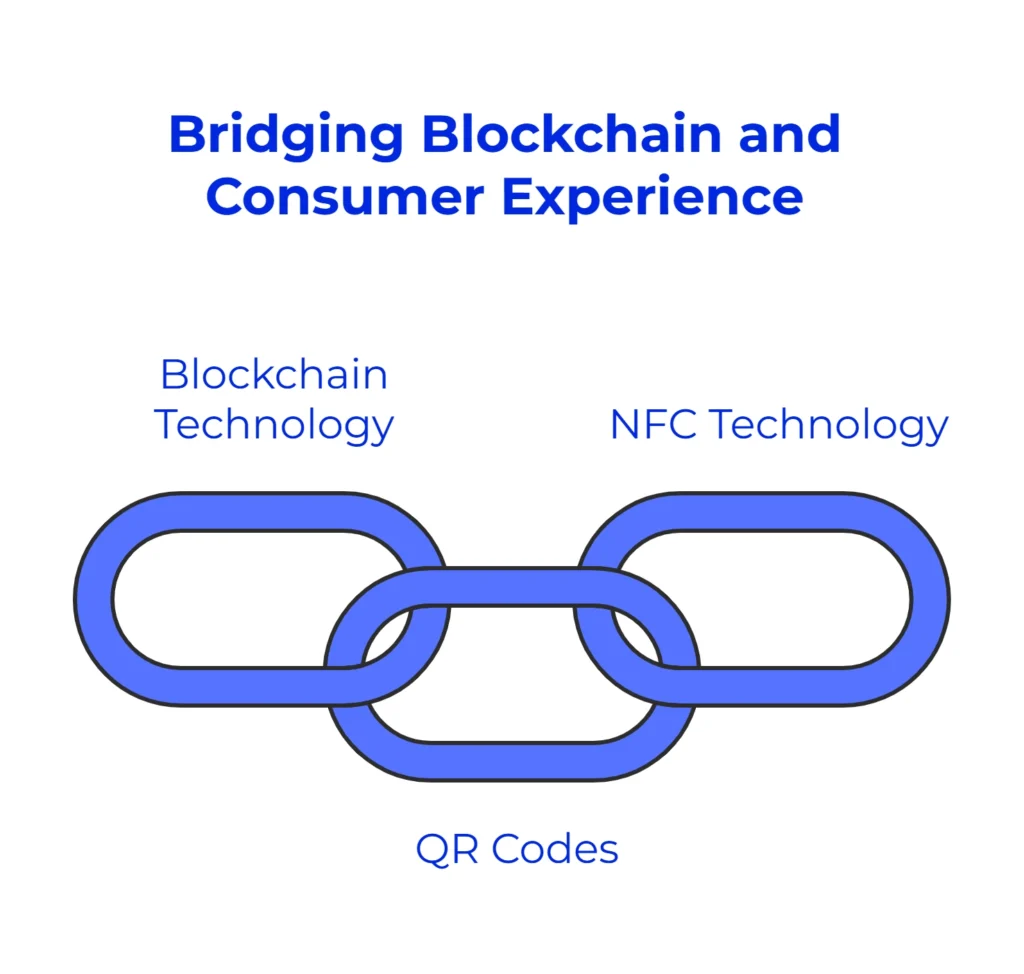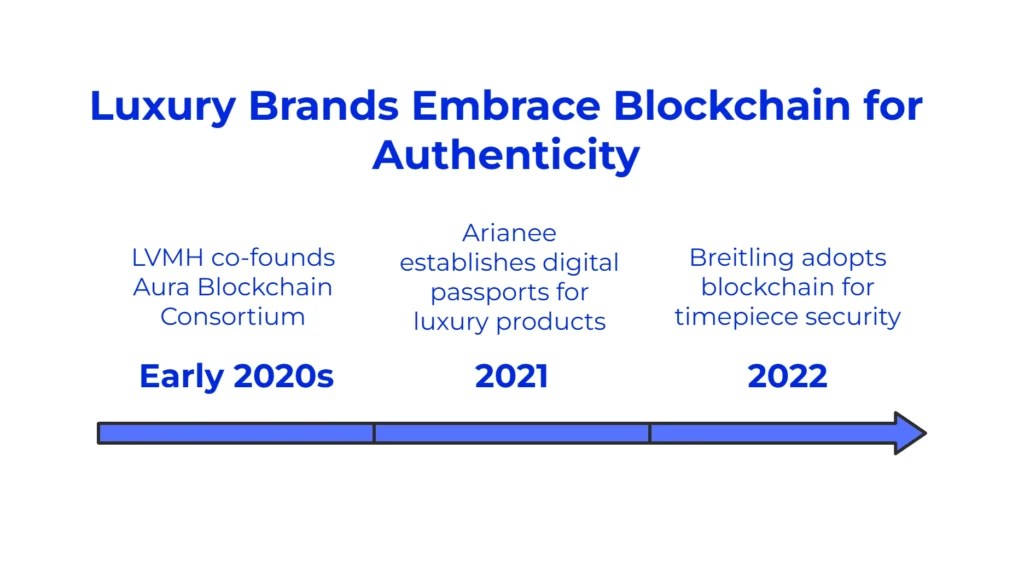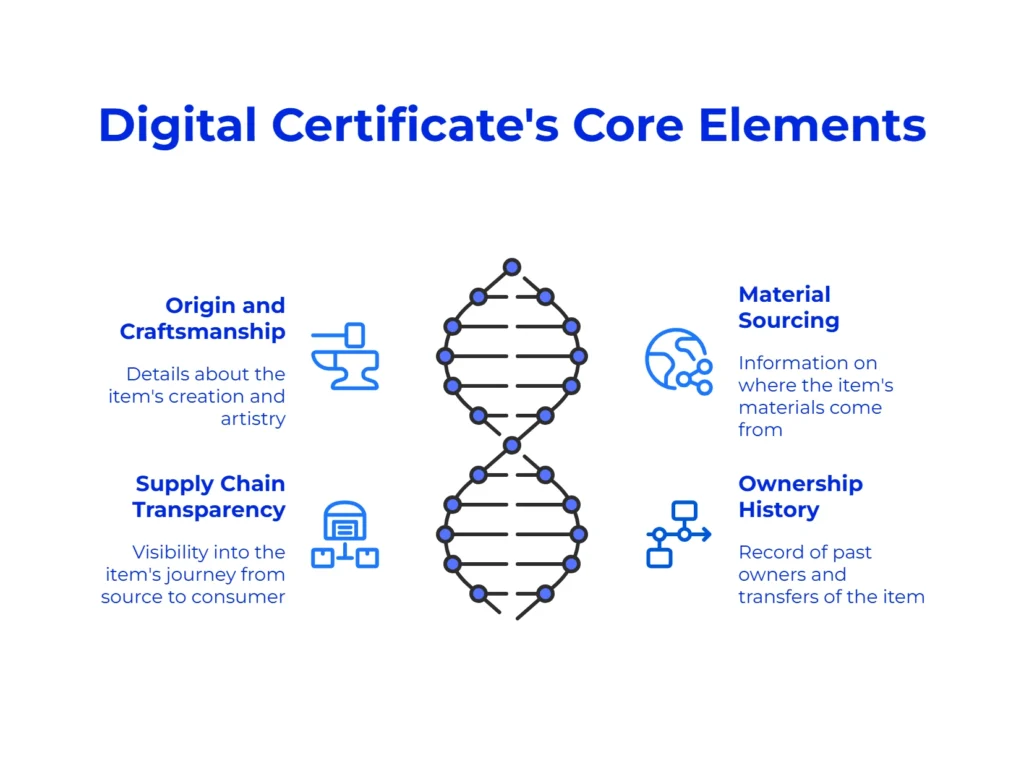How Blockchain Safeguards Prestige in the Resale Era
In our previous article, Protecting the Value of Luxury in a Post-Authenticity Era, we explored how blockchain technology is revolutionizing the way luxury brands fight counterfeits, particularly in an age where fakes have become so sophisticated that even experts struggle to tell them apart.
While digital certificates of authenticity are becoming the gold standard for verification, we also highlighted a critical limitation: blockchain can’t prevent someone from flaunting a convincing fake on the street. It protects value, not visibility.
Yet the value blockchain offers is far from theoretical. Its true strength lies in securing the resale, auction, and collector markets, where authenticity isn’t just a status symbol but a financial asset.
This second article goes deeper into how decentralized authentication is reshaping not just luxury’s supply chain but its economic future. From securing trust in secondhand marketplaces to transforming how prestige is measured and monetized, blockchain is becoming the silent engine behind the new luxury economy.
From Blockchain to Consumer Convenience

The luxury brands leading the blockchain revolution such as LVMH through the Aura Blockchain Consortium, Arianee’s pioneering digital passports, and Breitling’s secure provenance system are setting a new standard for authenticity and transparency in high-end goods. These initiatives create robust, tamper-proof digital identities for luxury products, but the challenge remains: how can consumers effortlessly access this wealth of verified information in their daily lives?
This is where technologies like QR codes and NFC come into play, acting as the vital link between the complex blockchain infrastructure and the consumer experience. By simply scanning a QR code or tapping an NFC chip embedded in a product, customers gain instant access to its verified digital certificate confirming authenticity, origin, and ownership history all from the convenience of their smartphones.
Leading Brands Embracing Blockchain’s Authenticity

- The Authenticity Aura Created via LVMH Cooperation
LVMH (Also known as Louis Vuitton), the titan of luxury, co-founded the Aura Blockchain Consortium because it saw early on the revolutionary potential of blockchain technology.
Some of the most prominent brands in the sector come together in this cooperative ecosystem, combining their knowledge to create a standardized blockchain foundation for traceability and verification. Aura serves as a digital provenance ledger for well-known LVMH brands including Christian Dior and Louis Vuitton.
Customers are empowered with a digital certificate that cannot be tampered with, a virtual passport that meticulously documents the voyage of their treasured purchase, confirming its authenticity and tracing its origins from the point of origin to their hands. For more information, see LVMH, Prada Group and Cartier come together to form the Aura Blockchain Consortium supporting the first global blockchain dedicated to the luxury industry.
- Arianee Using Digital Identity to Strengthen Brands
Arianee established itself as a major enabler in the field of blockchain-based digital passports for luxury products after realizing the necessity for a specialised and autonomous platform. With the help of this cutting-edge platform, marketers can give their products distinctive digital identities that are safely rooted in the blockchain.
Luxury homes may provide their customers with authenticated documentation that goes beyond simple proof of purchase by collaborating with Arianee. By providing a wealth of data, including ownership history, comprehensive product specifications, and even unique brand content, these digital passports help to strengthen the bond and increase openness between the brand and its customers. 1 Visit Arianee | Enterprise Solutions for Digital Product Passports for more information.
- Breitling: The Unbreakable Ledger, Time, and Genuineness
Breitling has adopted blockchain technology to give its prestigious timepieces an extra degree of security and confidence in the exacting field of horology, where accuracy and tradition are crucial.
Owners may obtain comprehensive warranty details, a clear and easily available record of the watch’s provenance, and even a safe way to transfer ownership in the secondary market thanks to their blockchain-powered digital passports. This digital companion guarantees each Breitling watch’s lasting worth and traceable history in addition to authenticating the physical craftsmanship. 2
These examples point to a significant trend. Rather than being just a trendy word, the wealthy luxury sector is starting to view blockchain as a practical instrument in the ongoing battle against counterfeiting. By embracing transparency and immutability in blockchain technology, these innovative businesses are paving the way for a time where trust is ingrained in luxury itself rather than merely verifying facts.
Digital Certificates: Luxury’s New Passport

A blockchain-based digital certificate isn’t just proof of purchase. It stores:
- Origin and craftsmanship data
- Material sourcing information
- Supply chain transparency
- Ownership and transfer history
These records can’t be erased, hacked, or modified without detection. When you scan a QR code or tap an NFC chip, you’re not just confirming it’s real. You’re stepping into the item’s full story.
Elevating the Resale Market and Deepening Brand Engagement
The luxury resale market is thriving but still faces significant counterfeit risks that can shake buyer confidence and reduce the value of pre-owned items. Blockchain technology offers a powerful solution by enabling:
- Instant authenticity verification for sellers, making it easy to prove legitimacy.
- Increased buyer confidence when purchasing high-value second-hand goods backed by tamper-proof digital certificates.
- Streamlined authentication processes on resale platforms like The RealReal and Vestiaire Collective, improving efficiency and trust.
These advancements help raise the baseline value of luxury resale items, turning them into long-term assets rather than just one-time purchases.
Beyond verification, blockchain also empowers brands to build deeper connections with consumers through:
- Exclusive content sent directly to verified owners.
- Early access to new collections and limited editions.
- Personalized aftercare and concierge services tailored for each owner.
This shift transforms a single transaction into a lifetime engagement loop, enhancing both the prestige and ongoing desirability of luxury goods in the resale market.
A Key Outcome
Blockchain technology offers luxury businesses a strong chance to build a deeper foundation of trust and transparency with their cherished customers while also successfully addressing the ongoing problems caused by counterfeiting. 3
Blockchain has the ability to change the way premium brands are protected and greatly improve the overall customer experience by creating an unchangeable and easily verifiable record of authenticity.
- arianee.com: https://www.arianee.com/[↩]
- breitling.com: https://www.breitling.com/ua-en/about/digital-passport/[↩]
- medium.com: https://medium.com/d-classified/blockchain-based-authentication-within-a-metaverse-d034fea573db[↩]